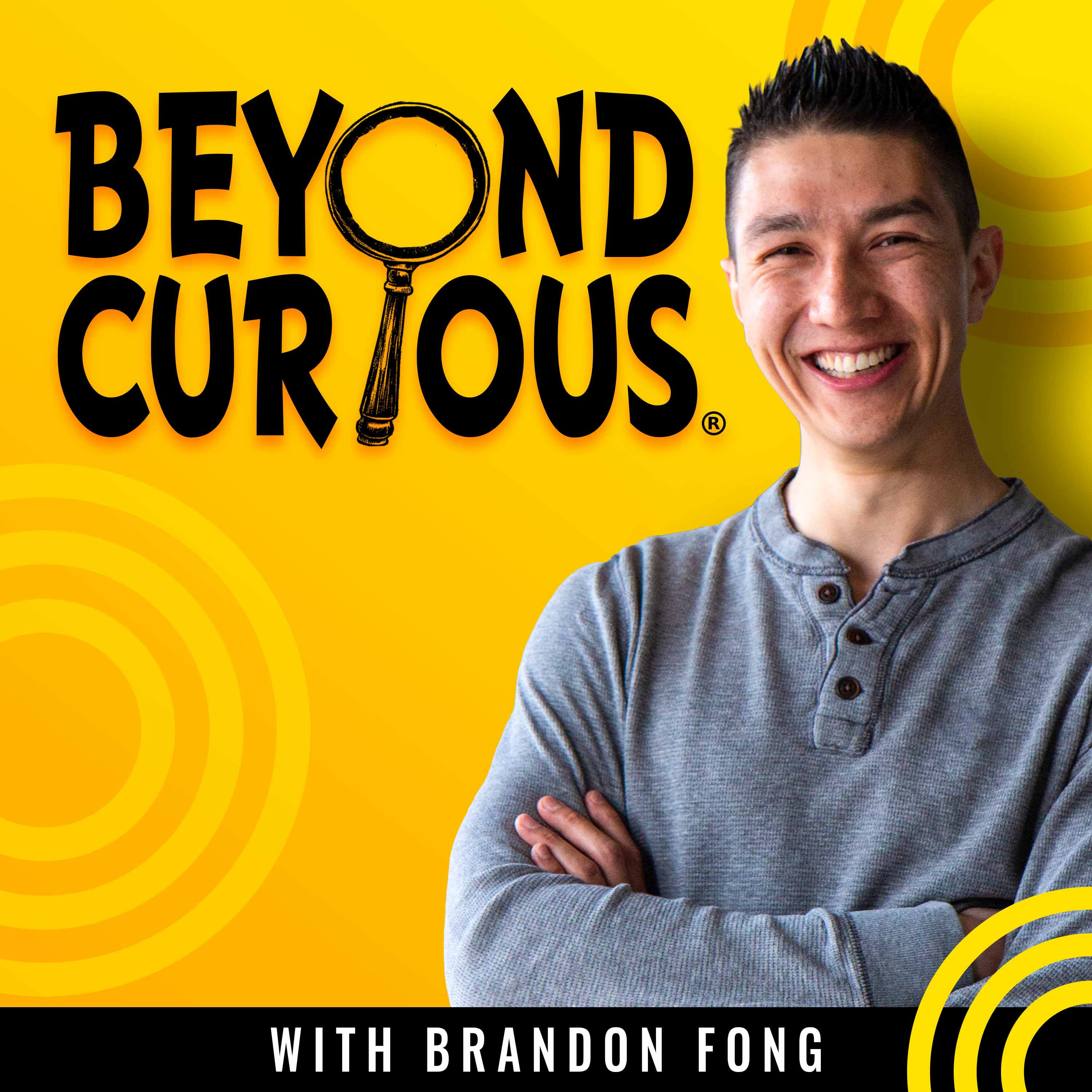

#254: BC Time Machine: Conscious Storytelling w/ Michael Hauge, Jude Charles, & Britt Lefkoe
One of my core values is something I call conscious storytelling.
I believe the stories we tell — both internally to ourselves and externally to the world — create our reality.
Change your story, and you can change your reality.
That’s why in this Beyond Curious Time Machine episode, I wanted to hit both sides of storytelling:
- How do we tell more magnetic external stories that attract the right people and opportunities into our lives?
- How do we rewrite the internal stories running in the background of our own lives?
To do this, we are bringing in clips from 3 previous guests:
- Episodes #36 and #37 with Michael Hauge — Hollywood storytelling legend that has worked on projects starring will smith, julia roberts, tom cruise & many others whose 6-step formula helped me become a dramatically better storyteller.
- Episodes #147 and #148 with Jude Charles — documentary filmmaker who has produced stories for Google, Steve Harvey, and dozens of visionary CEOs… flips the script, showing us why storytelling isn’t a formula… and reminding us that the most important story you’ll ever tell is the one you tell yourself.
- Episode #160 with Britt Lefkoe — one of the world’s top mindset experts, who reveals how our childhood stories quietly shape our reality… and how to put more possibilities back on the table.
If you also believe in the power of storytelling — both internal and external — this episode is for you!
Show Notes Generated With The Help of AI!
00:00 - Introduction to Beyond Curious and today's guests, Michael Hauge, Jude Charles, and Britt Lefkoe
Brandon introduces this special "Time Machine" episode centered around the art and impact of storytelling. He explains the Time Machine format, which revisits past episodes and extracts key insights. Brandon also shares his philosophy of "conscious storytelling" and how this episode will explore both external and internal narratives.
02:20 - Michael Hauge’s Six-Step Storytelling Formula
Brandon introduces Michael Hauge, highlighting his Hollywood credentials and deep influence through works like Hero’s Two Journeys and Storytelling Made Easy. He explains why Michael’s six-step framework became foundational for Brandon’s storytelling journey.
05:59 - Michael Hauge Explains the Six Key Beats of Story
Michael details his six essential story steps:
- Setup
- Crisis
- Pursuit
- Conflict
- Climax
- Aftermath
He walks through each phase with examples, showing how to build empathy, define a visible goal, and end with a transformation that aligns with the audience’s aspirations.
11:30 - Brandon Reflects on Michael's Influence and Additional Episodes
Brandon shares more episodes featuring Michael—#36, #37, and #168—and offers unique glimpses into how Michael’s storytelling wisdom manifested in live coaching and even a “liquid storytelling” experiment.
13:02 - Introduction to Jude Charles and His Storytelling Philosophy
Brandon introduces Jude Charles, known for his work with Google and Steve Harvey, and for his book Dramatic Demonstration. He sets the stage for Jude’s perspective that storytelling is not bound by formulas.
13:24 - Jude Charles Defines Storytelling as a Specific Moment in Time
Jude emphasizes storytelling as “a recounting of a specific moment in time.” He explains how specificity and visual detail pull listeners into a narrative and why everyone inherently has the ability to tell compelling stories.
16:28 - Why Jude Rejects Storytelling Formulas
Offering a counterpoint to Michael Hauge, Jude argues that life is not a formula—and neither is storytelling. He critiques the rigidity of the hero’s journey and favors authenticity and emotional truth drawn from real-life moments and lessons.
20:05 - Reframing Internal Stories: Jude’s Story of Financial Struggle and Resilience
Jude shares a deeply personal story about the repossession of his car, followed by a phone call from a client celebrating a million-dollar success. He explains how that moment could have been internalized as defeat or as evidence of value—highlighting the transformative power of perspective.
24:50 - Transition to Britt Lefkoe: Exploring Internal Storytelling
Brandon transitions to mindset expert Britt Lefkoe, whose episode (#160) dives into the subconscious narratives that shape our identity and behavior—especially those formed in childhood.
26:03 - Britt Lefkoe on Growing Up With a Mission to End Suffering
Britt shares her upbringing under her father’s bold mission to end suffering through shifting limiting beliefs. She reflects on how early exposure to belief work shaped her worldview—and the surprising challenges it created for her own self-development.
28:47 - Britt’s Vulnerable Journey: When the Process Didn’t Work for Her
Britt recalls the pressure of mastering her father’s belief-shifting methodology, her struggles to apply it to herself, and the dissonance between her professional success and private insecurities. This led her to evolve the work and create her own path.
33:00 - Insight vs. Information: The Power of Unlearning
Britt shares her belief that insight—not information—leads to change. She distinguishes between cognitive understanding and deep emotional breakthroughs, describing how the brain stores limiting beliefs and why mindset transformation is often about unlearning.
34:21 - What Did You Take Off the Table?
Britt introduces a transformative frame: that we are born with infinite possibility, but through life experiences we “take things off the table.” She challenges listeners to reflect on what dreams, desires, or self-beliefs they’ve removed—and to consider putting them back.
37:44 - Final Reflections and Gratitude from Brandon
Brandon wraps up the episode by expressing his appreciation for the guests and the audience. He encourages continued exploration of the featured episodes and a deeper dive into the art of conscious storytelling.
Links & Resources:
Michael Hauge Episodes:
- Episode 36 – Hollywood’s Secret Weapon on Storytelling
- Episode 37 – Michael Hauge Coaches Brandon on His Story
Jude Charles Episodes:
- Episode 147 – Dramatic Demonstration to Attract Premium Clients (Part 1)
- Episode 148 – Dramatic Demonstration to Attract Premium Clients (Part 2)
- Jude Charles’ Book: Dramatic Demonstration
Britt Lefkoe Episode